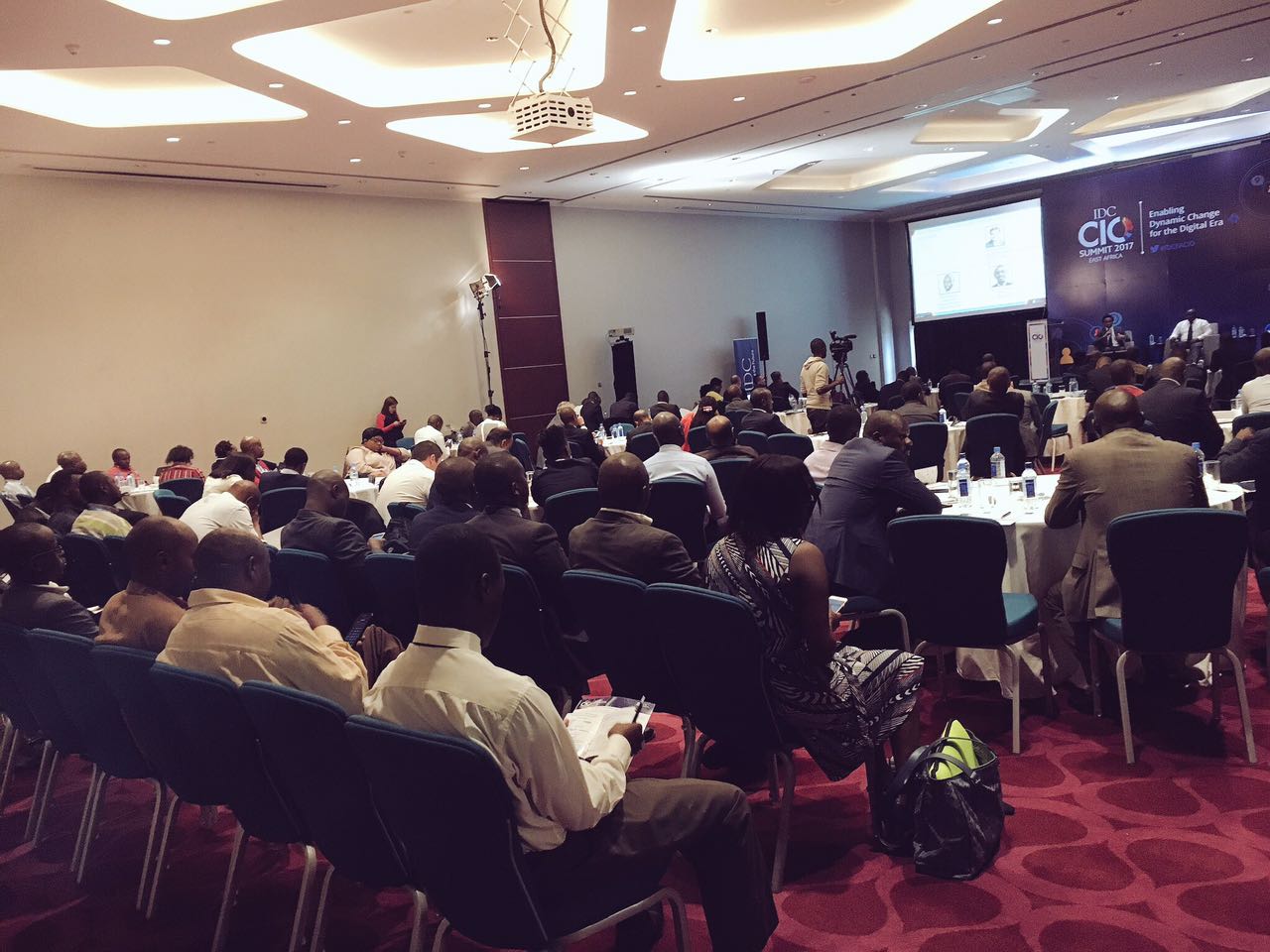
The role of the East African CIO has never been more critical to business success — leading innovation, driving ROI and finding the right IT talent, all the while doing more with less, getting executive buy-in and ‘keeping the lights on’. This was the picture painted at the IDC CIO Summit held in Nairobi yesterday.
In East Africa, IDC research shows that CIOs are using digital transformation to improve the customer experience and cater to demands for better, faster and more personalised service. They also have the opportunity to leverage digital transformation to create new revenue streams.
As the Summit’s key speakers revealed, they must overcome the following challenges to get it right.
Challenge 1: The talent problem
The number one challenge for CIOs in East Africa is the same one facing their peers elsewhere in the world: finding the right talent, said Jyoti Lalchandani, Group VP & Regional MD for the Middle East, Africa & Turkey at IDC.
“CIOs need to rebalance their IT portfolios, predict what new ‘third platform’ skills they will require, which ones will become obsolete, and start preparing,” said Lalchandani. They also need to consider what skills they will outsource, which ones they’ll develop in-house, and how they’ll manage issues like skills transfer with external vendors.
The rate of change means that constant upskilling is critical. “We can’t set up annual classroom seminars and expect to keep up anymore,” said Nikki Summers, Regional Director for Sage East Africa. “Learning must happen every day. It needs to be part of the culture, and it must include a strong element of experimentation. Our biggest risk is not trying new things. As leaders we must be comfortable with potentially failing, but recovering quickly”.
Challenge 2: No time to innovate
Summit speakers also noted that CIOs are struggling to find the time to innovate and lead change while ‘keeping the lights on’ and maintaining operational efficiency. The same applies to their teams, who need to find time to innovate and learn on the job, while delivering on existing expectations.
It’s an age-old problem that has been exacerbated because of the need to adapt and change faster than ever before – and there is no easy answer, said Summers. Optimisation and automation of IT processes can help larger companies reclaim some of the time they spend keeping the lights on for innovation.
Challenge 3: Collaborate across the business
For CIOs to succeed in their digital transformation projects, they need to get buy-in from across the business. IT decisions and investments in the past were predominately made by the IT department, but we’re now seeing the emergence of a new class of IT buyers, according to Lalchandani.
Marketing, HR, and sales now all have a vested interest in technology that supports their function, and CIOs face the challenge of balancing requests with available budget, and ensuring seamless integration into the enterprise to avoid creating a ‘forest of technology siloes’.
Challenge 4: Security
IDC’s research shows that a lack of adequate budget and of employee adherence to security policies, top the list of security challenges in East Africa. “Constant innovation means constantly having to update your security policies,” said Veronica Nderitu, Security Manager at the Kenya Tea Development Agency Holdings. “You can have a good policy on paper, but if nobody knows what to do, then it doesn’t help”.
According to Nderitu, in addition to change management and regular security audits, companies should be doing their own regular research into emerging threats and make sure they are adequately prepared to face them.
Cloud adoption across the East Africa region is picking up and CIOs should seize SMAC (social, mobile, analytics and cloud) technologies as an opportunity to create new revenue streams, increase productivity and transform their business models. Ultimately, CIOs today should be less ‘engineering’ and more ‘pioneering’ to ride this wave of innovation, said Summers.
Read>>A new meaning for CIOs: Champions of Innovation in Organisations




